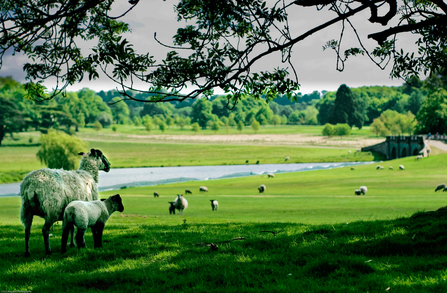Trees are part of the solution. They are amazing carbon capture and storage machines that absorb atmospheric carbon, locking it up for centuries. They are also hosts to a wide variety of plants, lichens and mosses and provide home and shelter for many species of wildlife. However, Wales is one of Europe's least wooded countries, with woodland providing only 14.8% of land cover compared to an EU average of 38%.
Recently, there has been an increasing focus on food security and pressure for more domestic food production. There is also a need to balance the demand to grow nutritious food while at the same time ensuring the environment remains healthy. Many farmers, such as those in the Nature-Friendly Farming Network, can see that there are significant benefits to farming with nature. They are eager to learn and adopt farming practices that address the environmental risks they face, such as the climate crisis. Such risks can directly impact their businesses. Trees play an important role in balancing food, business, and the environment.


